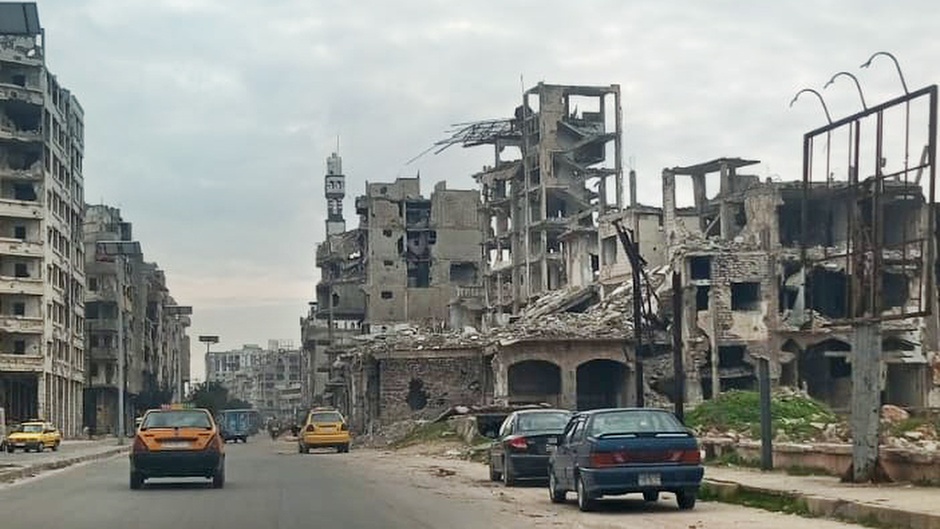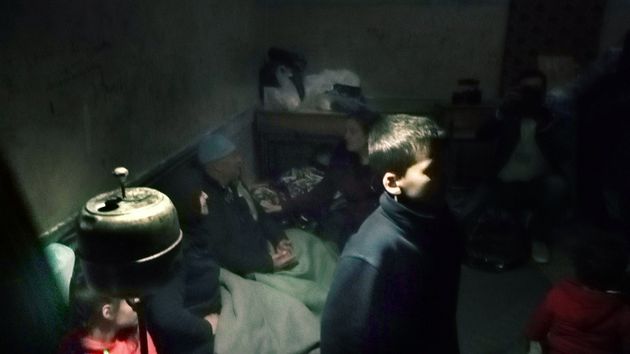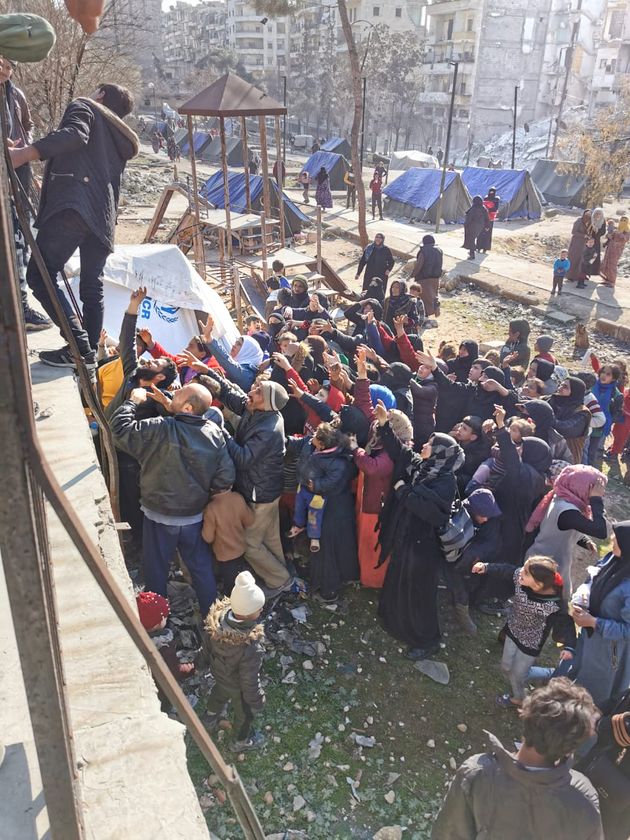The TWR media team in Syria balances spiritual themes with medical and psychological guidance. They also help in practical ways.
 Although most church buildings in Aleppo are damaged, the congregations are uniting to help anyone in need. / Photo: TWR.
Although most church buildings in Aleppo are damaged, the congregations are uniting to help anyone in need. / Photo: TWR.
In a nation fragmented by civil war, the recent earthquakes unearthed fresh memories of trauma.
Since the beginning of the Syrian conflict in 2011, many people have been displaced after losing their homes. Many live in extreme poverty. Still others have lost family members in the war and struggle to see a way out of despair.
Now, Syria is reeling from one of the deadliest earthquake disasters in modern history. Repeated aftershocks have had a profound psychological impact on the victims, and immediate physical needs grow day by day. Where is hope amid the chaos?
TWR (also known as Trans World Radio) is meeting people where they are, even in tragedy. When Syrians have nowhere left to turn, radio programs such as Hope for Syria and Youth in Mind offer comfort through God’s Word, like rays of light in dark times.
Since the first broadcast in 2014, Hope for Syria has examined difficult issues from a biblical perspective. Produced in the Syrian Arabic language, the program is created by TWR’s local staff who are also grappling with shock and loss.
Since the earthquake, each 15-minute episode of Hope for Syria has been modified to reflect the current situation. Jesus met both spiritual and practical needs when he walked the earth.
Similarly, the media team in Syria balances spiritual themes with medical and psychological guidance. They also help in practical ways by providing food and clothing as resources allow.
But it isn’t only Syrians in their homeland who are listening. Syrian refugees from places like Europe and Saudi Arabia also tune in through radio, the internet, or media players which are distributed around the world.

TWR began broadcasting programs in Arabic language in 1961 and has continued reaching the Arabic speaking people with the gospel ever since. Today, TWR uses radio and various digital platforms such as the website, a mobile app, and social media to spread the gospel in the Arab world.
Some members of the TWR Arabic team were serving in earthquake-stricken areas of Syria.
Calla*, from the TWR Arabic team who visited Aleppo, recalled what she saw after the latest earthquakes: “People just ran out of their home when the earthquake hit, and didn’t manage to take anything with them besides what they were wearing.”
She goes on to say, “People lost a lot; not just their homes but their loved ones too.” People are mostly on the streets, homeless and hungry.
An Orthodox church in Aleppo is housing around 350 people, families, the elderly, children and infants. There’s a carpet to sleep on, but not enough blankets to go around. TWR Arabic teammates visited this church to talk, pray, and simply listen to the people there.
Remarkably, they prayed with Muslims too, telling them about Jesus and the miracles he performed. TWR is also cooperating with the trusted local church, providing food and clothing as these items become available.
To this end, TWR has set up an emergency fund to help support our ministries in both Syria and Türkiye in the aftermath of the disaster.
Although most church buildings are damaged, the congregations are uniting to help anyone in need. Resources are limited, but they hand out clothes and medical kits when they can.
They cook rice and wheat for people on the streets. Church teams are searching for infant milk for the babies, but there’s a major shortage.
Calla reported seeing kids fight over a sandwich.They lack basic needs for survival. “When they receive jackets, they act like they just got a million dollars.” She then describes the families, “Mothers are heartbroken, kids are lost. You look at them and you see their dead eyes. No hope.”

Aired in the Syrian Arabic dialect, TWR’s program Youth in Mind shares the unconditional love of Christ with young men and women.
Compassionate youth leaders create the content, incorporating honest peer-to-peer interactions and acknowledging emotional needs. Through these genuine conversations, Syrian youth are coming to Christ.
That said, the earthquakes have caused constant power outages and limited internet access in the region. Still, the program producers are determined to continue speaking into the lives of the youth.
Creativity takes on a whole new meaning when technology is scarce, but the media team is looking for ways to distribute SD cards containing hope-filled messages. They are also brainstorming ways to promote their programs through events, campaigns, and social media.
Syria certainly needs our prayers. “People are in survival mode,” said Calla. “There is no support system.” She believes the affected regions need a whole team of counselors to help victims process the trauma they’ve experienced.A story of a 17-year-old boy who was orphaned after the catastrophe brings tears to her eyes.
So where is hope?
Hope is in the streets, as Christians share with those in need. As they pray and cry with those suffering. As they sacrifice their own lives to share the story of Jesus’ sacrifice. “I believe that whole communities can change,” said Calla. “It starts with Jesus.”
* Name changed due to security.
Jade Alger, writer and communications specialist for TWR Europe and CAMENA.

Las opiniones vertidas por nuestros colaboradores se realizan a nivel personal, pudiendo coincidir o no con la postura de la dirección de Protestante Digital.
Si quieres comentar o